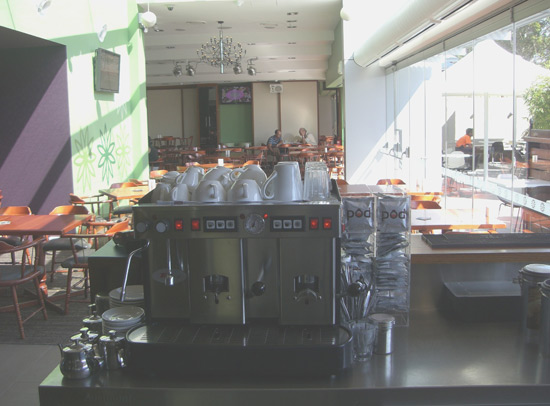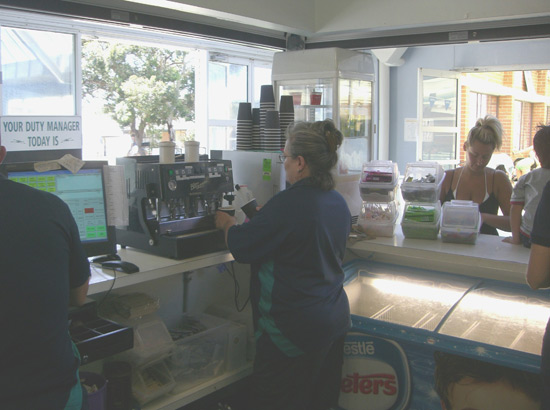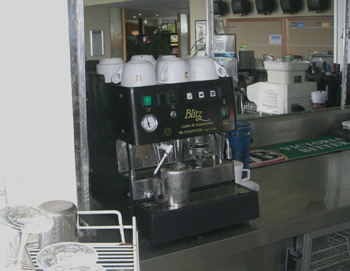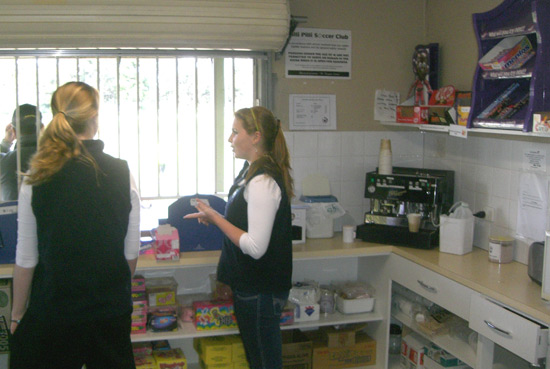FREQUENTLY ASKED QUESTIONS
What is a 7g Single/ESE Espresso Pod?
What is a 14g Commercial Double Espresso Pod?
What is a 10g Commercial Espresso Pod?
What is a Swiss Water Decafeinated Espresso Pod?
Why are Cafes using espresso pods?
Why are Bars, Clubs, Restaurants, Kiosks, Churches using Espresso Pods?
What is a 7g single/ESE Espresso Pod?
The single espresso pod standard is 44ml wide and 10ml high. The weight varies according to coffee blend, roast, grind and batch - around 7-8 grams. The pods are symetrical in shape and have a tag for easy removal from pod ony/specific equipment. For more information visit www.esesystem.com
What is a 14g Commercial Double Espresso Pod?
The standard double espresso pod is 57ml wide and 13ml high. The weight varies according to individual blend, roast, grind and batch – around 13-15grams. The 14g Commercial Double Espresso Pod has been designed to fit a commercial cafe system and produce a saleable cafe-style coffee, without using coffee beans/a coffee grinder and without the services of a qualified coffee barista.
A 200mm, 210mm or 215mm pod filter basket will be required(sold on this website). Alternatively, a Pod Pressure Handle can be used. Pod Pressure Handles have an adjustable floor, which can be set for 14g commercial double espresso pods and a built-in pressure valve that opens at 9Bar. There are 8 different Pod Pressure Handles specific to different makes/models of cafe equipment. Systems such as; Astoria, Bezzera, Boema, Brasilia, Caramali, Cimbali, Expobar, Faema, Nuova Simonelli, Pavoni, Rancillo, San Marco, San Marino, San Remo, Wega(all sold on this website).
What is a 10g Commercial Espresso Pod?
The 10g Commercial pod is 57ml wide and 11ml high. The weight varies according to individual blend, roast, grind and batch – around 10-12grams. The 10g Commercial Espresso Pod has been designed to fit a commercial cafe system and produce a saleable cafe-style coffee, without using coffee beans/a coffee grinder and without the services of a qualified coffee barista.
A 190mm, 195mm or 200mm pod filter basket will be required(sold on this website). Alternatively, a Pod Pressure Handle can be used. Pod Pressure Handles hava an adjustable floor, which can be set for 10g commercial espresso pods and a built-in pressure valve that opens at 9Bar. There are 8 different Pod Pressure Handles specific to different makes/models of cafe equipment. Systems such as; Astoria, Bezzera, Boema, Brasilia, Carimali, Cimbali, Expobar, Faema, Nuova Simonelli, Pavoni, Rancillo, San Marco, San Marino, San Remo, Wega(all sold on this website).
What is a Swiss Water Decaffeinted espresso pod?
Research tells us that the market for decaf coffee is people who actually like coffee, however, for one of many reasons, don’t want the caffeine. The market is not people who don’t like coffee. Caffeine is present naturally in coffee beans, grown on the plantations. To date, the process of removing the caffeine from the coffee beans has been chemically intensive. The choice of coffee beans to be put through the de-caf process has typically been low grade. The end result is often an unpleasant, chemically tainted coffee.
The Swiss Water decaf process does not use chemicals and does not taint the taste of the coffee. Visit www.swisswater.com. We have selected a high grade coffee blend, popular as a café blend. The only difference is the caffeine, the taste is not compromised. Decaffeinated espresso pods are packed in blue foil.
Why are Cafes using Espresso Pods?
Espresso pods are ideally suited to requirements for decaffeinated coffee, organic coffee and other specialty coffees. A fresher, more cost effective option to operating multiple grinders.
Switch to espresso pods rather than opening another bag of coffee beans at close of day. Continue to serve coffee during and after the grinder has been cleaned/serviced.
Why are Bars, Clubs, Kiosks, Restaurants, Churches etc, choosing Commercial ESE Coffee systems over traditional café systems?
The main reason is that a coffee grinder cannot turn stale coffee beans into freshly roasted coffee beans. Freshly roasted coffee beans are like freshly baked bread, the freshness and flavour deteriorates rapidly. Cafes, selling 100’s of cups of coffee each day can justify discarding unused/unbagged coffee beans at the end of each day to ensure coffee freshness and flavour are maintained. Lower volume coffee sellers cannot justify the costs of maintaining coffee freshness and flavour. Commercial pod systems eliminate this problem.

A La Piccolo installed in a Sydney Pub Restaurant. Bar staff do not want to be coffee baristas. Commercial pod systems offer a faster, fresher and more consistent coffee. Coffee drinkers get a cafe quality coffee served over the bar and bar staff do not need to be coffee baristas.
There are also spoilage and wastage costs associated with professionally operating a coffee grinder. The coffee grinder must be continually calibrated(grind and dose) to allow for coffee batch to batch variables and day to day variables( ie humidity swells coffee beans). Commercial pod systems eliminate this problem.

A Tecnosystem 520DA(7+7) installed in the kiosk of a Sydney Aquatic Centre. A traditional café system is considered too slow for this environment. Coffee needs to be served immediately over the counter. The 520DA can be easily operated by all staff and is twice as fast as a traditional café system. The high powered auto-frother on this model is very effective, operating simultaneously with coffee extraction on the RHS.
There are also staff training and operational costs associated with professionally operating a traditional café system. With commercial pod systems, these costs are significantly reduced.

A Tecnosystem 510DA installed on the bar in a Sydney RSL club. A traditional café system operates limited hours in another part of the club. The space available and low volume makes the commercial ESE pod system ideally suited.

A Tecnosystem 520DA(7+7) operating in a Sydney soccer club canteen. A traditional café system considered too slow for this environment. On a Saturday morning, the requirement is 150-200 cups, in 2 hours, served immediately over the counter.